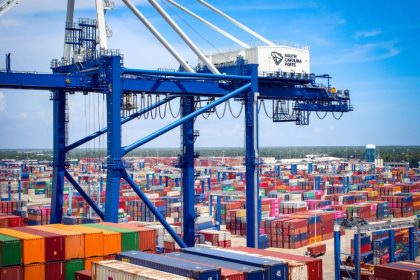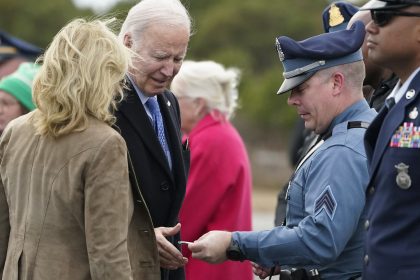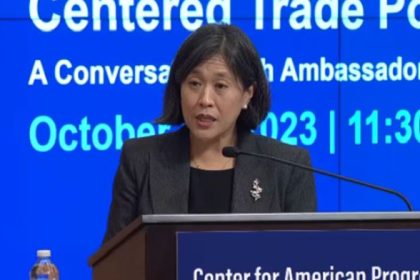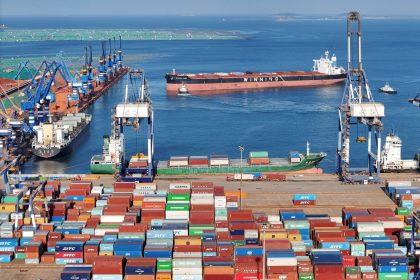US, 17 Other Countries Agree to Mount Joint Response to Supply Chain Issues

WASHINGTON — The United States and 17 of the world’s leading economies have agreed to work together on “crisis response” to alleviate ongoing disruptions and bottlenecks in the global supply chain while also addressing longer term resilience challenges that threaten their economic well-being.
The announcement came on the closing day of a virtual Supply Chain Ministerial Forum, hosted by Secretary of State Antony Blinken and Commerce Secretary Gina Raimondo.
In addition to the United States, the participating nations included Australia, Brazil, Canada, the Democratic Republic of the Congo, the European Union, France, Germany, India, Indonesia, Italy, Japan, Mexico, the Netherlands, the Republic of Korea, Singapore, Spain and the United Kingdom.
In a joint statement the participants said, “The shocks to global supply chains from pandemics, wars and conflicts, extreme climate impacts, and natural disasters have put in stark relief the urgent need to further strengthen supply chains, to work to reduce and end near-term disruptions, and to build long-term resilience.
“This is a global challenge we intend to approach resolutely and cooperatively,” they said.
“To ensure this effort is effective and reaches those most in need, we intend to engage in this work with businesses, workers, academia, labor and civil society, including women, representatives from local and other communities, consistent with participants’ domestic laws and international obligations, and different levels of government,” they added.
The nations also agreed to a set of “global supply chain principles” that they said will be the cornerstone of “collective, long-term resilient supply chains based on international partnerships.”
“Civil society consultations, consistent with participants’ domestic laws and international obligations, are an important part of transparency,” the partner nations agreed. “We intend to advance information sharing and, to the extent possible, common approaches and early warning systems about potential, emerging and systematic supply challenges.”
At the same time, they said, they would take the utmost care to protect non-public information, including information necessary for the protection of essential security interests.
The partner nations said they also intend to promote diversification and increase global capacities for multiple, reliable, and sustainable sources of materials and “inputs,” intermediate goods and finished goods in priority sectors.
“We intend to explore opportunities to promote public and private investment into supply chains in priority sectors and to encourage partnerships and co-investment for access to and development of environmentally and socially responsibly sourced materials and inputs,” the partners said.
They also vowed to strive to involve small- and medium-sized businesses in priority supply chains.
“We aim to promote the adoption of digital technologies by micro-, small-, and medium-sized companies. To advance the principles of equity and inclusion, we aim and strive to ensure investments are made into a broad range of communities, consistent with participants’ domestic laws and international obligations, throughout our economies,” they wrote.
To promote supply chain security, the participating nations said they would deepen their consultations to identify and address risks arising from supply dependencies and potential vulnerabilities in critical infrastructure.
Finally, they agreed to encourage global sustainability and responsible business conduct across supply chains by strongly adhering to the multilateral environmental agreements to which they are parties, including the United Nations Framework Convention on Climate Change and the Paris Agreement.
“We encourage the adoption of responsible business practices and recognize the importance of implementing our respective obligations under international labor conventions ratified by respective countries along the entire value chain to ensure that opening up new sourcing or supply chain options does not shortcut existing commitments to uphold human rights,” they said.
“We also aim to foster and support the fair and sustainable manufacturing and trade of products, consistent with participants’ domestic laws and international obligations, including through circular economy, the bioeconomy, and other approaches, that advance the fight against climate change, biodiversity loss, pollution, and which advance the U.N. Sustainable Development Goals,” they concluded.
Dan can be reached at [email protected] and @DanMcCue























